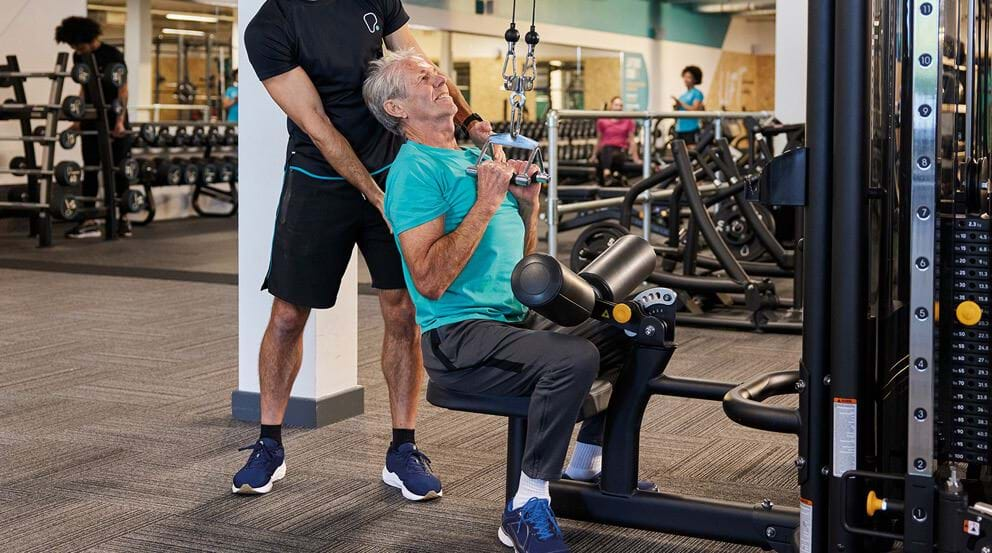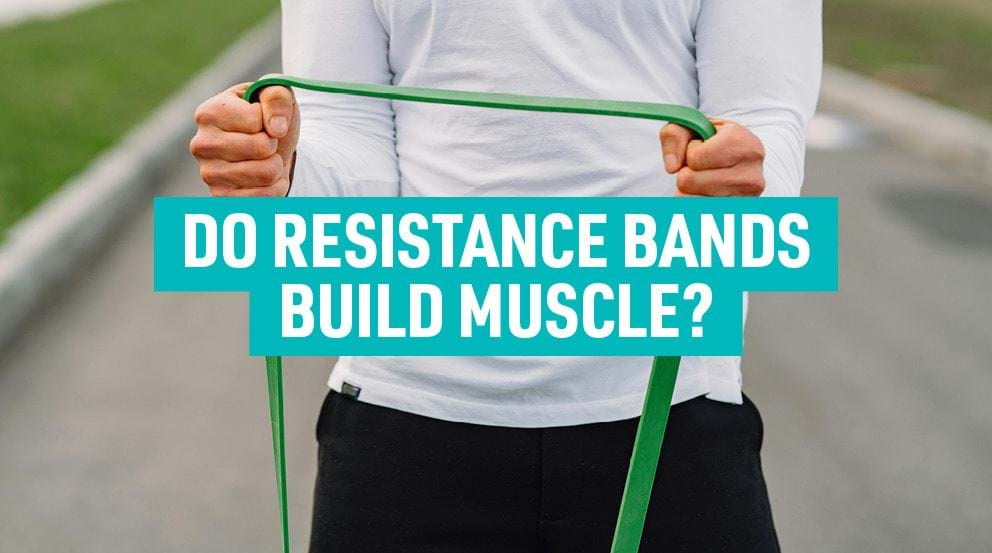Five Exercises For Stronger And Bigger Legs

Page last updated: 8th June 2023
So, you've been training steadily at the gym for a while now, working those abs, biceps, shoulders and lats with ruthless efficiency. You've noticed your physique improve leaps and bounds. It's all starting to come together and... wait a minute; you haven't been skipping leg day, have you?
No matter how much attention you've been paying to your diet, and no matter how many barrels of sweat you've been offering up to the gods of the gym, neglecting your lower body training is bound to leave you with an unbalanced physique.
Whether you're a seasoned fitness enthusiast or just starting your journey towards bigger legs, we've got you covered with expert tips and effective exercises to help you sculpt, strengthen and grow those leg muscles.
5 Tips For Building Bigger, Stronger Legs
Prioritise compound exercises
Compound exercises are movements which involve multiple muscle groups all working together at the same time - so for legs, these would be movements like squats, deadlifts, leg presses and lunges. Making these the foundation of your leg training means you'll be able to work more of your leg muscles with each movement.
Go for progressive overload
Progressive overload means aiming to gradually increase either the weight, reps or sets of each exercise you're performing over time. This is key for muscle growth and, by continually increasing the challenge on your legs, you'll be able to consistently build strength and mass.
Focus on higher rep ranges for building mass
If achieving thicker thighs and bigger legs is the main goal of your workout, you're best off aiming for higher rep ranges (around 8 to 12) as this is better for hypertrophy and muscle growth. If, however, you want to focus on both growth and strength, alternate between higher and lower (more like 4 to 6) rep ranges which will target different muscle fibres and help with gains for both goals.
Don't forget proper nutrition
Proper diet and nutrition is just as important for building strength and mass as it is for losing weight. You'll need to ensure you're eating sufficient quantities of all macro groups (so protein, carbohydrates and healthy fats) to ensure you're getting enough energy in the right ways. The ideal macro split varies from person to person, but in general, it's helpful to aim for around 25-35% of your total daily calorie intake to come from protein sources, 45-65% from carbohydrates and 20-35% from healthy fats.
Be patient and consistent
Bigger legs won't appear overnight - a thicker, stronger lower body takes time and dedication, so stick to your workout plan and be patient with the process. Make sure to include plenty of rest days and enjoy the journey!

5 Exercises For Building Leg Mass And Strength
Here are five exercises that will help to strengthen and thicken the legs.
Weighted walking lunges
Walking lunges follow the pattern of standard lunges, except, instead of stepping back to your starting position with your front leg, following each rep, you'll step forward with your rear leg. This causes you to "walk" forward while performing the exercise.
Performing the lunge in this fashion puts extra emphasis on the quad muscle of the lead leg, and the continuous reps will mean quick exhaustion. Weights can be added for extra resistance.
Dumbbell step ups
Step ups are a great exercise for maximising tension in one leg at a time, assuming they're done properly. Adding dumbbells to the exercise --- one in each hand, of equal weight --- is a great way of upping the intensity if you don't feel you're getting enough of a workout from the basic move.
A step up is done by placing one leg on a bench, stair, platform or box --- ideally around knee height --- and then stepping up onto the box using the muscles of the front leg to lift yourself.
To ensure you're isolating the lead leg properly, step close to the box before performing the exercise, and keep the toes of your rear leg pointed slightly up. This will prevent you from relying on momentum or turning the workout primarily into a calf training session for your rear leg. Alternate your legs after a few reps.
Barbell squats
Barbell squats are one of the best exercises for building lower body strength and muscle mass. Squats work every muscle in the leg, and using a barbell allows for heavy weights to be lifted, perfect for fatiguing the muscles enough for muscle hypertrophy!
Make sure you're squatting through your full range of motion to recruit more muscle fibre as this will help with building strength.
Jump lunges
Jump lunges aren't typically used in muscle building focused workouts, but they're great for building strength and power, which can help you to lift heavier with your other leg exercises.
This is because plyometric exercises like jump lunges are one of the best ways to build fast twitch muscle fibres, which are very strong.
To do this exercise, begin by performing a standard lunge, but instead of standing back up in the normal fashion, jump up and switch your legs around into a scissor fashion, landing in a lunge position on the opposite side.
Do this exercise, alternating between legs rapidly, until you can't take any more.
Dumbbell B Stance RDLs
B stance RDLs are a Romanian deadlift variation where the back foot is only lightly used for support to make the front leg work harder. This is a great exercise for building strength and size in the hamstrings and glutes!
Start by standing with your feet hip-width apart then take one foot a step back, resting only on the ball of the foot. This allows you to perform the RDL focusing only on the front leg, with the back leg helping to balance.
If you're ready to gain muscle, you could start by checking out this muscle-growing workout plan, or this bodybuilding workout plan, both of which give tips and exercises for increasing strength and mass. You can also get more ideas for leg workouts here.
To get started at the gym, you can find a PureGym near you and become a member today. Our gyms are filled with high-quality weights machines and free weights, so you can start getting stronger either on your own or with one of our expert personal trainers.


